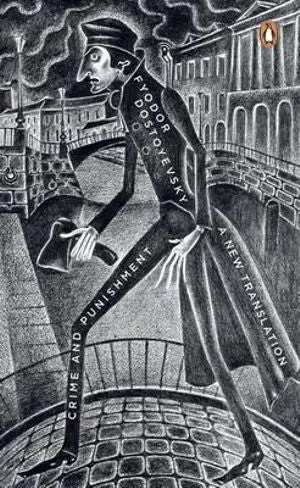'Will I really - I mean, really - actually take an axe, start hitting her on the head, smash her skull to pieces . In the following years he fell deeply in debt, but in 1867 he married Anna Grigoryevna Snitkina (his second wife), who helped to rescue him from his financial morass. I'm not a bad man; I'm just caught in the shoddy circumstances I was born into. In 1849 he was arrested and sentenced to death for participating in the 'Petrashevsky circle'; he was reprieved at the last moment but sentenced to penal servitude, and until 1854 he lived in a convict prison at Omsk, Siberia. They lived abroad for four years, then in 1873 he was invited to edit Grazhdanin (The Citizen), to which he contributed his Diary of a Writer.Eco-friendly technology. In 1880 he delivered his famous address at the unveiling of Pushkin's memorial in Moscow; he died six months later in 1881. . Lord, will I really?' This new translation of Dostoyevsky's 'psychological record of a crime' gives his dark masterpiece of murder and pursuit a renewed vitality, expressing its jagged, staccato urgency and fevered atmosphere as never before. Nobody will miss her. I just need the money to free me from my treadmill. Review by John Purcell On a bad day, the choice Rasholnikov, the anti-hero of Crime and Punishment, makes, doesn't seem too terrible. All I really need is a bit of a start - a windfall to buy me some time to think and to prepare.High-security. Monday morning, say, as the alarm goes off at a quarter to six, it's still dark outside, it's raining and the working week stretches out long and dull before me. Will I slip in warm sticky blood, break the lock, steal and tremble; and hide, all drenched in blood . In the decade following his return from exile he wrote The Village of Stepanchikovo (1859) and The House of the Dead (1860). .
. With her out of the way, and the money in my pocket, I am free to change the world for the better. Most of his important works were written after 1864: Notes from Underground (1864), Crime and Punishment (1865-6), The Gambler (1866), The Idiot (1869), The Devils (1871) and The Brothers Karamazov (1880). Whereas the latter draws heavily on his experiences in prison, the former inhabits a completely different world, shot through with comedy and satire











